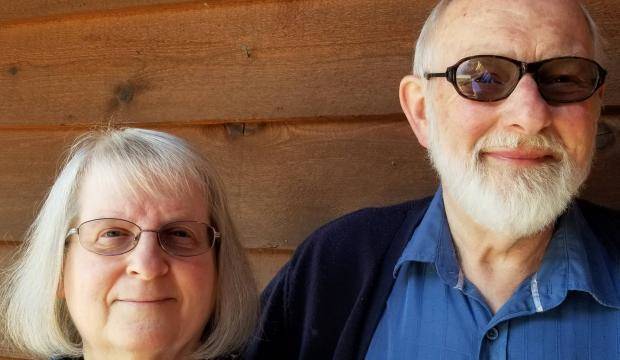In our last “Living and Growing” column, we reflected on the death of our 45 year old daughter, Tanya. Today’s column reflects further on the impact of her legacy. Her life was filled with pain, even though she was loved by family, friends and congregations. As Tanya wrote in one of her poems, “Out of all the things I’ve lost, I miss my mind the most.”
She taught us that people born with FASD, who suffer from Schizo-Affective Disorder and substance abuse, have much to contribute to society. She was seen by most as a “throw away,” yet she was a daughter, mother and sister, as well as talented poet, artist and humorist whose life impacted many people.
[Our daughter lived with FASD for 45 years. This is her legacy.]
As Jesus instructed, “Truly I tell you, just as you did it to one of the least of these, who are members of my family, you did it to me.” (Matthew 25:40.)
Tanya taught us to better understand the “the least of these.” She taught us to put ourselves in their footsteps with compassion — to enter into their pain and become empathetic, breaking down the “we/them” barriers and becoming “us.” When we break down the “we/them” and become “us,” we open ourselves to finding wisdom in unlikely places.
Our lives were transformed through our four children. Our parenting began with the hopes, dreams and expectations parents typically have for their children. We adopted three children, fully embracing the 1970s social philosophy that “all we needed was love,” with the understanding good nurturing would overcome nature. Our lives were neat and tidy, making it easy to be judgmental. Yet, at the same time, we embraced the theology of caring for “the least of these,” but in a “we/them” way.
As two of our children aged, we discovered they were born with permanent brain damage from FASD. Our hopes and dreams for them died. We began to experience life in a different way and found the need to change our attitudes, thinking and redefine success. Despite our great efforts to protect our children, they became exploited, poor, helpless, without rights, racial and social outcasts, homeless, imprisoned and totally misunderstood. We found ourselves experiencing their lives with and through them, and “the least of these” became “us,” rather than “we/them.” Our lives transformed into advocates, not only for our children, but for all who are “the least of these.”
Society too frequently places unreasonable “conditions” on the most vulnerable because they have not experienced the difficult realities of extreme vulnerability. Racism, sexism and innumerable perceived barriers become excuses to blame and heap criticism on those deemed unacceptable. The powerless are frequently unable to speak for themselves. Being exploited, poor, helpless, without rights, racial or social outcasts, refugees, forgotten, disabled, homeless, imprisoned or misunderstood isolates and harms the reality that we are all the beloved Children of God.
May we commit ourselves to embrace all cultures, races and ethnicities and welcome diversity in an ever widening circle of acceptance. May we embrace all who are vulnerable and marginalized. May our unique life journeys be lived out knowing that God’s unconditional love and grace unites us and removes the conditions we place on life and faith. Our stories are different, but we are all precious gifts from God.
In conclusion, we share this prayer from Tanya’s memorial service: “Help us look into a pained face and not turn away, look at bruises and scars and not pull back, hear anger and rage and not run away, touch a fragile mind or body with tenderness and not pity. Help us journey with compassion with all who are wounded. Use us to be the caring presence you call us to be. Amen.”
• Pastor Larry Rorem is a retired Evangelical Lutheran Church in America pastor living in Juneau. Laura Rorem is a member of the JAMHI Health and Wellness Board. Both are advocates for people with brain disorders, and their families. “Living & Growing” is a weekly column written by different authors and submitted by local clergy and spiritual leaders.

